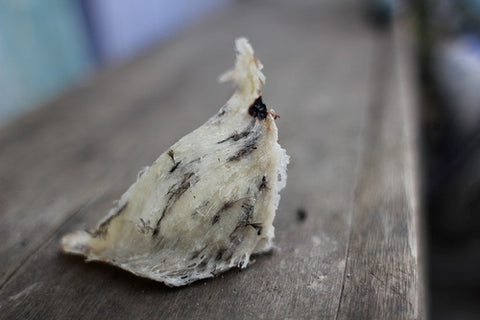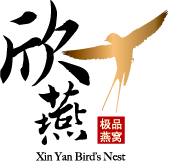Bird's Nest and Nitrite: What Is It?

Bird's Nest and Nitrite
The issue of bird’s nests containing harmful substances such as nitrite has raised concerns amongst many people, especially pregnant mothers who eat them regularly during their pregnancy stage.
In 2011, surveillance conducted by China authorities found that high levels of nitrite was present in various bird's nests, in particular, the blood-red bird’s nest. Nitrite occurs in the environment, in food and water, and is produced inside living organisms. It can be used as food additive, mainly as a preservative and colour fixative in foods such as cheese products as well as cured and fermented meats.
Red bird's nest is reported in recent news stories to contain nitrite, which may pose threats to the health of consumers. This post serves to educate our consumers and give them a better understanding about nitrite, and to remind them to exercise cautions when purchasing any other bird’s nest apart from our own.
Why is nitrite added to red bird’s nest?
Nitrite found in red bird’s nest may either be formed naturally, or by the result of an attempt by merchants to turn white bird’s nest into red bird’s nest (which can fetch an insane high price in the market), by adding a large amount of nitrite during processing.
As nitrite can be dissolved in water and red bird’s nest will be washed, soaked and stewed for an extended period of time in most cases, the level of nitrite is lowered as a result.
What is a "nitrite"?
Nitrite is converted from nitrate, which is part of the natural nitrogen cycle and is found in air, soil, water and food - nitrate may also be produced in vivo. Nitrite is often used as a food additive for preservation, coloring purposes and the prevention of bacterial growth.
However, it is toxic and will be converted into cancer-causing agents such as Carcinogenic Nitroso Compounds under certain conditions. Long-term consumption of food containing excessive amounts of nitrite will increase the chance of cancer.
According to the National Standards of the People’s Republic of China, the use of nitrite is only allowed in processed foods such as salted bacon. Nitrite will not pose serious threats to human health if it is used in accordance with the standards.
What should I do?
It should be noted that nitrite can only be harmful if consumption exceeds standard levels for our bodies. Excessive amounts can decrease the ability of red blood cells to transfer oxygen throughout our body.
Moreover, it can react with our stomach juices to form nitrosamines which are potentially carcinogenic. It is known that babies who consume nitrite-contaminated water will result in developing a serious health condition called methemoglobinemia, which is also known as ‘blue baby syndrome’.
With these rising concerns, consumers are naturally more discerning when it comes to selecting bird’s nests. As mentioned, nitrite is inherently present in bird’s nest due to natural biological processes. However, it is possible to achieve negligible levels of nitrite in bird’s nest through proper switflet nest farming techniques and comprehensive cleaning during the processing of the bird’s nest.
How to differentiate real from fake?
Due to its unique nutritional structure, red natural bird's nest may release red substances when it is soaked in the water. If the water in which the red bird’s nest is soaked turns from colorless to dark red, and many unwanted chemicals (white and milky) appears in the water, it is highly likely that the product has been dyed. In this case, consumers are advised to stop purchasing or consuming such products.
Where do I purchase genuine bird's nest that is safe for consumption?
Purchase your bird’s nest from a reliable and trusted brand. Xin Yan Bird's Nest™ is a fully integrated bird’s nest producer – from the construction, maintenance and harvesting of farms right through to the processing of the nests as well as packaging, sales and distribution. We are committed to our promise of producing 100% pure bird’s nest without the use of any chemicals, bleaching agents, preservatives, or colouring.
Furthermore, we send our bird's nest to AVA regularly to ensure that all our bird's nest sold are in line with the strict food regulations set in Singapore, and are safe to consume. This ensures that the bird’s nest you enjoy is of the highest quality and hygiene. As a way to reassure our consumers, we do provide our AVA lab test report for viewing upon request.
What is the proper way to prepare bird's nest?
Studies have shown that thoroughly washing and soaking bird’s nest overnight (8~10 hours) can remove a substantial quantity of nitrite in bird’s nest (since nitrite is water-soluble). Water used for soaking bird’s nests should also be replaced once or twice during the soaking process.
For recipes, check out this link.
Get Yours Now
Next →
← Previous





